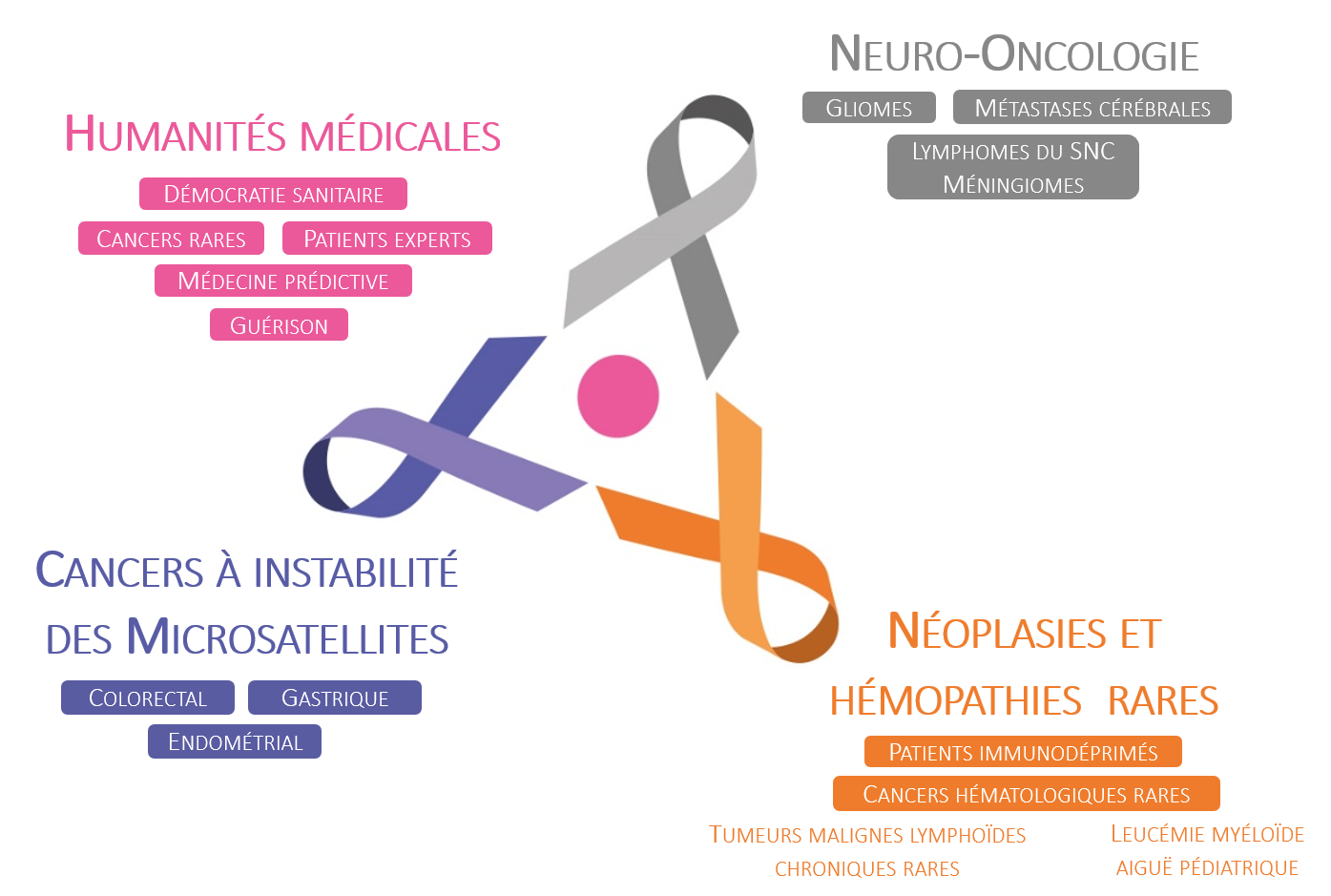The integrated research project of SiRIC CURAMUS is structured around three programmes, supported in a transversal way by the Medical Humanities:
Neuro-oncology: Brain cancers are the 1st cause of cancer mortality before the age of 35. Due to their rarity, their great heterogeneity and their frequent resistance to conventional treatments, they remain poorly understood. This program focuses on gliomas, which require a better understanding of the mechanisms of tumor initiation and progression in order to develop innovative therapies. The main objectives are to :
- Better understand functional genomics and the role of the tumor microenvironment.
- Improve diagnosis through innovative and/or non-invasive approaches.
- Develop personalized therapies and improve the quality of life of patients.
Rare immuno-hematological cancers: Rare immuno-hematological cancers include paediatric leukaemia, rare lymphoid haemopathies, and cancers of immunosuppressed individuals (HIV transplant recipients or carriers) that are insufficiently studied and excluded from clinical research protocols. The main objectives of this program are to :
- To characterize at the genomic and immunogenomic level these rare tumors and to explore the interactions of the host and tumor microenvironment.
- To develop innovative diagnostic tools predictive of evolution.
- To set up innovative therapies and procedures for monitoring long-term effects in rare tumours in adults and children.
Cancers with microsatellite instability: MSI cancers affect many organs at any age but are under-diagnosed. They account for 15-20% of colon, stomach and uterine cancers. This program covers a wide range of hereditary or sporadic cancers that share a common biological mechanism, leading to a significant need for personalized medicine. The main objectives are to :
- Understand the processes underlying MSI tumor initiation and progression and shape the microenvironment of these cancers.
- To develop new diagnostic tools and therapeutic regimens adapted to their modern management by a rapidly emerging precision medicine (immunotherapy, immune checkpoint inhibitors).
- To understand the mechanisms of resistance to new therapies and extend their indications.
The Medical Humanities: The Human and Social Sciences axis brings together philosophers, sociologists and researchers in information and communication sciences, whose objective is to propose:
- Critical reflections on concepts occupying a prominent place in the SiRIC project, such as “health democracy” and “patient experts”; “rare cancers”; “cure”; or “predictive” or “personalized” medicine.
- A multidisciplinary work and approach on the meaning, understanding and use of these concepts is being developed to shed light on the role they play and their various implications.
